- Home
- Matt Rogers
Wolf: A Will Slater Thriller (Will Slater Series Book 1) Page 3
Wolf: A Will Slater Thriller (Will Slater Series Book 1) Read online
Page 3
He preferred to avoid that kind of reaction.
The trail twisted and turned ahead, weaving through a complex maze of rocky outcrops and vast sloping hills, all covered in the same barren sand and bleak stone.
Slater took one look back at the trio of whimpering checkpoint guards lying in the dust behind him. He imagined that — even if they managed to recuperate from their injuries and fetch their weapons from the treacherous valley slope — Slater’s outburst would have intimidated them into submission.
At least, he hoped so.
He wouldn’t take their lives while they lay there, helpless.
He had caused enough pain over the last ten years.
And — despite their attitudes — none of them deserved it.
He pressed on into the Hadhramaut Valley, letting all thoughts of the confrontation pass from his mind.
To an inexperienced combatant, the encounter would have affected their psyche for months, plagued by the memories of a life-or-death situation in which they could have caught a stray bullet at any moment.
To Slater, it was Tuesday.
By the time he made it to the first bend in the road and strode purposefully out of sight of the security checkpoint, all recollections of the fight had blended into the thousands of other echoes he’d rather forget.
5
The road provided Slater ample time for solitude.
Out here, at the edge of the earth, he could reflect.
The trail turned to a blur after twenty minutes of uninterrupted hiking. Every now and then he slid a thin plastic bottle out of the back of his jeans and took a long swig from the neck, but other than keeping hydrated he had nothing else to concern himself with.
He didn’t quite know exactly what he was doing in Yemen. It had been a simple-enough journey, crossing the border from Oman after trawling uneventfully through the neighbouring country as slow as he pleased.
How he had ended up in Oman was a tale that he almost didn’t believe himself.
It involved a man by the name of Jason King who used to work for the same highly-classified special-operations division as Slater. The pair had become acquainted in Corsica of all places, and since then Slater’s entire life had been flipped on its head.
King did that to people.
Now King had retreated to parts unknown to live out the rest of his days in privacy, and Slater was out of a job. Not long ago, he’d spent a relaxing week at a private luxury resort in Antigua in a hopeless attempt to wind down from a career of madness. That period of his life had taught him little, except for the fact that he wasn’t wired to stay in one place.
He was a wanderer, through and through.
And he didn’t mind wandering through the most dangerous places on the planet.
In fact, he welcomed it.
He shouldn’t have been expecting any less than what had resulted at the security checkpoint. The policeman who had sold him the tasrih had warned him of the confrontational nature of Northern Yemenis. Slater had sensed that the man had something against the Northerners, judging by the level of disdain in his voice when he’d described them as barbarians.
Slater chalked the aggression of the checkpoint guards up to a mixture of boredom and a lack of foreigners, and pressed on further into the Hadhramaut Valley.
A town appeared on the horizon, most of it shimmering through the haze of sunshine battering the desert plains from above. Slater had been expecting to come across civilisation at some point in the near future — the rudimentary map he’d perused at the beginning of the day had told him that a remote mountain town called Qasam rested past the security checkpoint he’d come through earlier.
He made for the collection of buildings, passing a pair of khat farms on either side of the trail. The tall trees rested still in the middle of the sweeping plateau, soon to be harvested for a sizeable profit. Slater kept a lookout for any sign of life amidst the plantations, but found nothing.
He continued.
The rumbling of an engine behind him caused him to grimace in anticipation. He tensed up like a coiled spring and turned on his heel, ready for a fight. If the trio of checkpoint guards had piled into a vehicle and set off in pursuit of their foe, Slater would have trouble dealing with them this time.
He had caught them off-guard initially.
It wouldn’t happen again.
Thankfully, the source of the noise turned out to be another beat-up Land Cruiser, lacking registration plates or a windshield. A pair of Yemeni men sat in the cabin, guiding the old truck along the winding trail towards Qasam. The vehicle rumbled past, and Slater exchanged a nod with the pair. As it trawled further along the track and reached Qasam’s limits, Slater eyed the flapping tarpaulin sheet draped across the rear tray. For a moment the tarp lifted in the wind, revealing bundles of khat lined along the metal in orderly rows.
Slater shook his head, flabbergasted.
From an outsider’s perspective, it seemed like the entire Yemeni economy revolved around the drug.
Gradually, more signs of life presented themselves. The monotonous view of sweeping plains and rocky outcrops for as far as the eye could see was replaced with the odd local administration building, set apart from the rest of the mountain town.
Slater passed by a couple of men dressed in official uniform sitting at a rickety table out the front of a broad three-storey brick building, chewing absent-mindedly on khat and talking in hushed voices as they gazed at the arid mountains all around them.
He nodded politely to them.
They nodded back, unable to hide their surprise at seeing a man in the region who wasn’t of Middle-Eastern origin.
Slater continued up into the centre of Qasam. He concluded the policeman who had given him the tasrih had been making a simple generalisation when he had warned of the northerners’ hostility.
People in this region seemed pleasant enough.
For the most part.
Artificial noise materialised for the first time in what felt like an eternity. Slater had become so accustomed to the quiet drone of the wind howling across the valley floor that he found himself shocked by a foreign sound. He identified it as the harsh, discordant blare of loudspeakers all across the town. He checked his watch and chalked the commotion up to one of the daily prayers that often tore through small towns such as these.
Every single person he strode past as he made his way into Qasam stared at him unashamedly, none of them bothering to mask their shock. He could only imagine what they were thinking.
A foreigner — out here?
He nodded and smiled warmly at each civilian in turn, electing not to linger in one place for too long. There was plenty of commotion outside the mosque as a group of townspeople dispersed from the entrance, draped in simple clothing, many of them sporting towels hanging off their shoulders. Slater moved along and strolled slowly through streets packed with merchants and khat-sellers, listening to the hiss of meat on makeshift grilles and the braying of animals in neighbouring alleys.
It contrasted sharply with the barren desolation of the plateau.
Despite everything, he smiled.
He had no place to stay, no personal belongings to speak of, nowhere in the world to be. He didn’t speak the native language, which had made communication next to impossible throughout his entire time in Yemen.
But he wouldn’t have traded it for anything else.
It was a welcome relief from a typical day in his life just a few short months ago.
He appreciated the unknown.
It was preferable to always having a task to complete, always having someone to rescue or someone that needed eliminating.
His worries were nothing in comparison.
He found a lookout on the outskirts of the town and opted to rest for a while, soaking in the sights for as long as he could. Despite all of Yemen’s dangers, he made sure to take the time to admire the beauty of the landscape. For as long as he could remember, he had been thrust from location to location, travelling the world in service to his country but never spending enough time in one place to truly appreciate it.
It helped that no-one was looking to murder him out here.
Not yet, he thought.
The lookout consisted of a tiny gravel courtyard sandwiched between a pair of archaic residential buildings overlooking the plateau. This portion of the town was positioned atop a rocky outcrop. It provided a view of all the khat farms surrounding the mountains, as well as the valley floor stretching for thousands of miles in any direction. Behind the lookout, past Qasam, the rocky promontory rose sharply into the jagged mountains. The cliffs stretched well into the distance, an imposing backdrop.
Slater sat down on an unoccupied bench, alone at the lookout. All the faint sounds of civilian life echoed up through the narrow laneways. After close to ten miles of travel on foot, the sweat ran freely from his pores. He let it come. Ordinarily the perspiration would cause discomfort, but comfort was something he hadn’t experienced in quite some time.
He wasn’t sure if he liked being comfortable, anyway.
That was no way to live.
He turned his gaze outward, across the plateau. The policeman who had provided him with the tasrih had described the vast valleys as wadis, most of them half a mile wide and over a hundred miles long. From the outpost, Slater could almost make out the dimensions of one of the great gorges dotting the plateau. It was an impressive sight, to say the least.
‘Don’t get many tourists out here,’ a voice said from behind.
English.
Slater turned, startled, to lay eyes on the man who had stepped into the lookout.
6
The man appeared to be in his mid-forties, dressed in a strange combination of formal and tribal attire. Slate
r recognised the white futa that the majority of Yemeni civilians wore around their waists — a plain white cloth that wrapped around one’s mid-section to cover the legs, like a skirt of sorts. Yet there was a collared business shirt draped over the man’s shoulders, hanging open and unbuttoned to compensate for the intense heat. His head was wrapped in a tribal cloth and his face was surprisingly smooth, lacking the weather-beaten lines that so many civilians out here possessed.
‘You speak English,’ Slater stated, taken aback by the revelation. He certainly hadn’t been expecting it.
‘Quite well,’ the man said, nodding. ‘I am almost fluent. A rarity out here — I know.’
‘I guess I’m something of a rarity out here too,’ Slater said, gesturing to his skin tone.
He wondered who had been the last African-American to wander through Qasam.
The man across from Slater smiled warmly and clasped his hands together in front of his waist. ‘Then we have something in common, my friend. We are unique.’
‘Can I help you with anything?’
The man shrugged. ‘Not particularly. My name is Abu.’
‘I’m Will.’
‘Pleasure to meet you, Will. Do you mind if I sit?’
Slater shrugged. ‘Be my guest.’
Abu crossed to the bench and sat down across from Slater. Together they stared out at the Hadhramaut Valley, soaking in the sights. Despite knowing almost nothing about each other, neither man felt it necessary to speak. The setting was too tranquil. Too calm.
Finally, Abu piped up.
‘Some people in these parts believe that the wadis in this valley were created by an ancient tribe of great beings known as the Ad. Allah removed the giants from the valley after they infuriated him, and all that is left of them is these valleys. They are the footprints of the Ad.’
Slater paused, soaking in the story. ‘Do you believe it?’
‘That’s quite a personal question.’
‘Sorry. May I ask how you know English so well?’
‘I think you have some explaining to do first, my friend.’
‘Do I?’
‘An American out here is a little rarer than my ability to speak a second language. If you don’t mind, I’d like to know a little more about you.’
‘And why’s that?’
Abu shrugged. ‘I like to know things. Otherwise — why bother?’
‘Why is it so strange to see an American in these parts?’ Slater said.
Abu looked across at Slater, staring at him like he was foolish. ‘You cannot be serious.’
‘I’m curious as to why everyone I make eye contact with looks like they’ve seen a ghost.’
‘You do not come here unless you were born here,’ Abu said. ‘Not by choice. Especially not now.’
‘Why?’
‘You know why.’
‘I know partially why. Lay it out for me.’
‘The oversupply of weapons. The civil war. The corruption. It is the poorest and most tribal state in the Middle East, my friend. You do not come here for leisure.’
‘I did.’
‘Which is why I’d like you to enlighten me as to your reasons.’
‘Do I need a reason?’
‘I think you do.’
‘I don’t have to explain myself to you.’
Abu bowed his head. ‘I mean no disrespect. I am always curious about these things.’
Slater paused, gathering his thoughts. ‘I was in a routine. My life was a hard one, but I was used to luxury. My job put me up in the most lavish hotels, the most opulent corners of the earth. I got stagnant. Then shit hit the fan at my workplace, which I won’t go into detail about, and I found myself out of a job. I was already in Oman, so I decided to shake things up a bit.’
‘You are not scared of what might happen? Some people in these parts do not like outsiders. Many are pleasant, but there are always a certain few.’
‘I’ve already run into a couple.’
‘And?’
‘They don’t bother me.’
‘What is it you used to do?’ Abu said, perhaps wising up to the fact that Slater wasn’t troubled by confrontation.
‘A lot of things,’ Slater said.
‘Any of them pleasant?’
‘Not really.’
‘I understand.’
‘I’m not sure if you do.’
‘I’ve met men like you. You don’t say much, but what you do say speaks volumes. You are haunted by your past.’
‘Am I?’
‘Well, I can’t speak for you. Most are.’
Slater paused. ‘I don’t think that kind of stuff has hit me yet. Maybe it will now that I have nothing to do.’
‘When’s the last time you had nothing to do?’
‘Childhood.’
Abu paused and nodded solemnly. ‘You think that what you’ve done might catch up to you?’
‘Who knows, Abu,’ Slater said. ‘Who knows.’
Abu reached into the pocket of his futa and came out with a small metal canister covered with nicks and scratches of varying sizes. He popped open the top and plucked out a thick ball of khat. The man rolled the weed between two fingertips, using his fingers like pincers to prepare the drug. Then he pressed the khat into his mouth, slotting it on the inside of his right cheek. He sucked rhythmically at the ball, staring peacefully out at the plateau as he did so.
‘Care to partake?’ he said.
Slater shrugged. ‘Why not?’
‘I thought it might take your mind off the past.’
‘I don’t need your help,’ Slater said, making his stance clear. ‘I’m not riddled with trauma. I’m fine. I’m just curious to try it.’
Abu shrugged. ‘Suit yourself.’
He passed across a large wad of khat, the green leaves bundled together to provide maximum ease of use, and Slater slotted the substance against the wall of his own cheek. He chewed on the leaves, letting the residue build up in his mouth, noting the bitter taste of the bush. He took his time, not in a rush to be anywhere or do anything. When the build-up of residue became too much he spat a glob of the gunk into the empty tin that Abu rested between them and took a swig from the water bottle in his back pocket.
‘Doesn’t do much,’ he admitted after a long pause.
‘It’s not supposed to,’ Abu said. ‘Do you notice that slight euphoria? That gentle pleasant feeling on the back of your neck?’
Slater nodded. ‘It’s nice.’
‘That’s why three-quarters of the population consumes this stuff. It’s also why I’m employed.’
Slater cocked his head. ‘You don’t look like a farmer.’
‘That’s good. Because I’m not a farmer. I’m a programmer.’
‘A programmer?’ Slater said. ‘Wasn’t expecting to run into a tech guy out here.’
‘Not many do,’ Abu admitted, smiling. ‘But the government relies on me. I keep the mechanical drills and pumps running across all the khat farms in the region. I fuel the entire country’s addiction. My services are in high demand, as you can imagine.’
‘The drills and pumps?’ Slater said.
‘They are important. Khat is responsible for a fifth of Yemen’s water consumption, my friend. Without me, the plantations would die of thirst, and there would be a fair few unhappy residents.’
‘So you float around this region?’
‘Somewhat. Usually I am escorted. It’s dangerous out here, you see.’
‘Why the lack of protection this time?’
‘Lack of available units,’ Abu said, shrugging. ‘It’s fine. I can handle myself. I just keep my head down. But I don’t like this area much anyway.’
Slater cocked his head. ‘Why’s that?’
Abu hesitated, as if he were about to touch on a subject he would much rather keep quiet about. He shook his head and broke eye contact, staring vacantly out at the valley. ‘It’s nothing.’
‘Tell me. Maybe I can help.’
Abu smirked and shook his head. ‘No, my friend. It is not like that. It it just a hunch.’
‘What kind of hunch?’
‘The tribes are not acting how they are supposed to.’

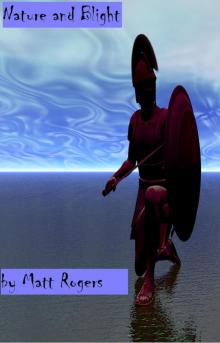 Nature and Blight
Nature and Blight The Wolves of Third Clan
The Wolves of Third Clan Ghosts
Ghosts Bear
Bear The Will Slater Series Books 1-3
The Will Slater Series Books 1-3 The Ruins
The Ruins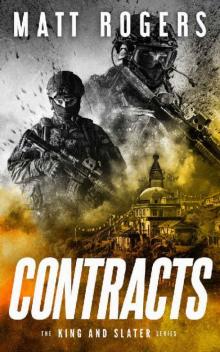 Contracts
Contracts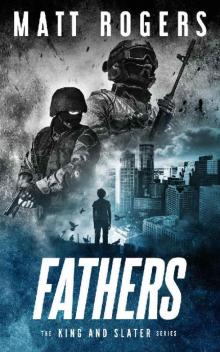 Fathers
Fathers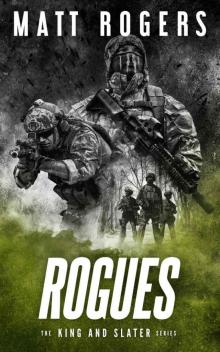 Rogues: A King & Slater Thriller
Rogues: A King & Slater Thriller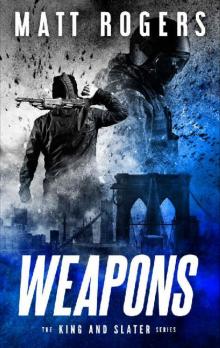 Weapons
Weapons Ciphers
Ciphers Lynx
Lynx Hunters
Hunters Of Superior Design
Of Superior Design The Hidden: A Black Force Thriller (Black Force Shorts Book 4)
The Hidden: A Black Force Thriller (Black Force Shorts Book 4) Blood Money
Blood Money The Hidden_A Black Force Thriller
The Hidden_A Black Force Thriller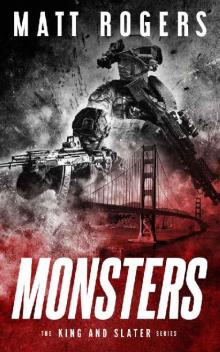 Monsters
Monsters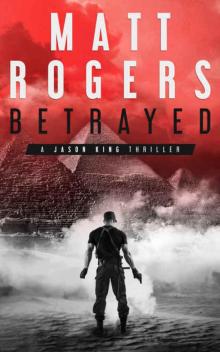 Betrayed: A Jason King Thriller (Jason King Series Book 4)
Betrayed: A Jason King Thriller (Jason King Series Book 4) Messiahs
Messiahs The Wicked_A Black Force Thriller
The Wicked_A Black Force Thriller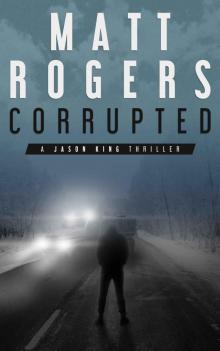 Corrupted: A Jason King Thriller (Jason King Series Book 5)
Corrupted: A Jason King Thriller (Jason King Series Book 5) The Jason King Series: Books 1-3
The Jason King Series: Books 1-3 Lion
Lion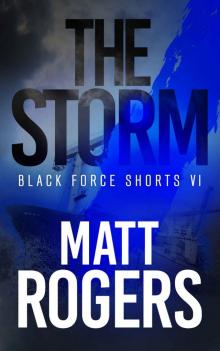 The Storm: A Black Force Thriller (Black Force Shorts Book 6)
The Storm: A Black Force Thriller (Black Force Shorts Book 6) Slayers (Jake Hawkins Book 1)
Slayers (Jake Hawkins Book 1) Warrior: A Jason King Thriller (The Jason King Files Book 2)
Warrior: A Jason King Thriller (The Jason King Files Book 2)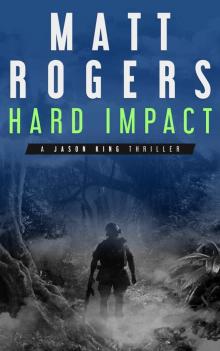 Hard Impact: A Jason King Operation (Jason King Series Book 0)
Hard Impact: A Jason King Operation (Jason King Series Book 0) The Wicked: A Black Force Thriller (Black Force Shorts Book 7)
The Wicked: A Black Force Thriller (Black Force Shorts Book 7) Warrior_A Jason King Thriller
Warrior_A Jason King Thriller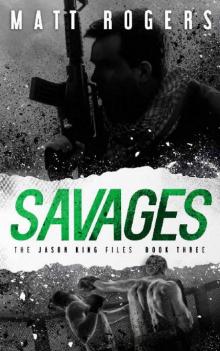 Savages: A Jason King Thriller (The Jason King Files Book 3)
Savages: A Jason King Thriller (The Jason King Files Book 3)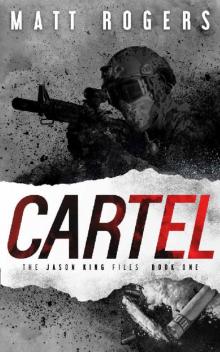 Cartel: A Jason King Thriller (The Jason King Files Book 1)
Cartel: A Jason King Thriller (The Jason King Files Book 1)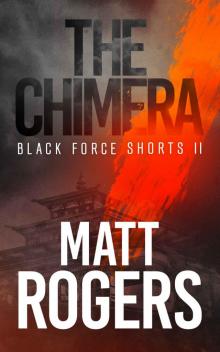 The Chimera_A Black Force Thriller
The Chimera_A Black Force Thriller The King: A Black Force Thriller (Black Force Shorts Book 8)
The King: A Black Force Thriller (Black Force Shorts Book 8)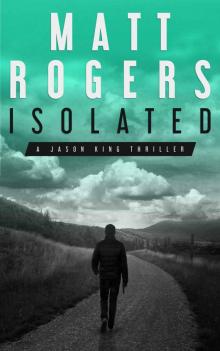 Isolated: A Jason King Thriller (Jason King Series Book 1)
Isolated: A Jason King Thriller (Jason King Series Book 1) The Victor: A Black Force Thriller (Black Force Shorts Book 1)
The Victor: A Black Force Thriller (Black Force Shorts Book 1) Imprisoned: A Jason King Thriller (Jason King Series Book 2)
Imprisoned: A Jason King Thriller (Jason King Series Book 2)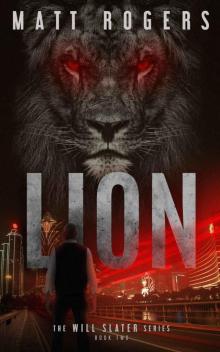 Lion: A Will Slater Thriller (Will Slater Series Book 2)
Lion: A Will Slater Thriller (Will Slater Series Book 2)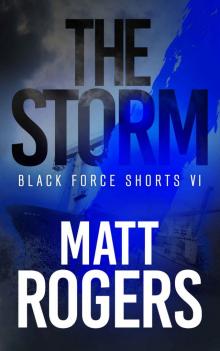 The Storm_A Black Force Thriller
The Storm_A Black Force Thriller Hunted: A Jason King Thriller (Jason King Series Book 6)
Hunted: A Jason King Thriller (Jason King Series Book 6)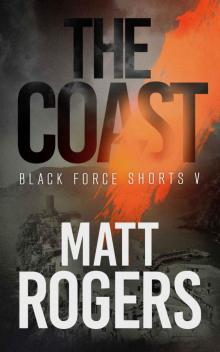 The Coast: A Black Force Thriller (Black Force Shorts Book 5)
The Coast: A Black Force Thriller (Black Force Shorts Book 5)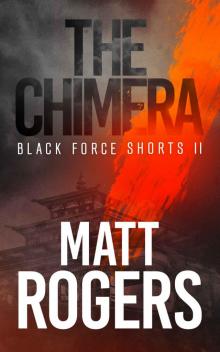 The Chimera: A Black Force Thriller (Black Force Shorts Book 2)
The Chimera: A Black Force Thriller (Black Force Shorts Book 2)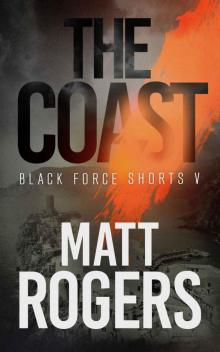 The Coast_A Black Force Thriller
The Coast_A Black Force Thriller